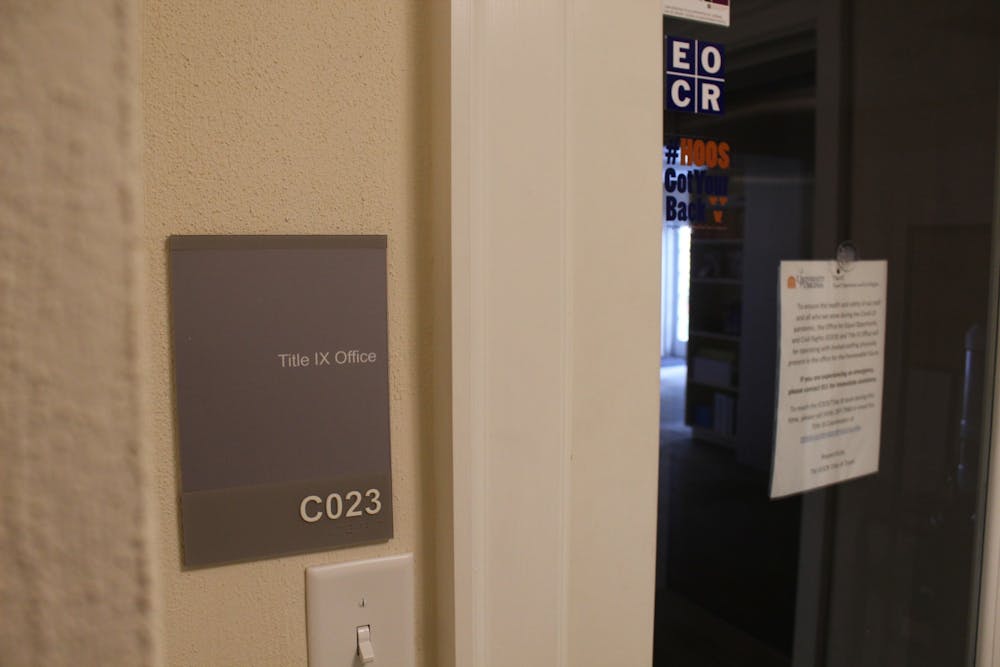The Univesity has a long history of sexual violence. The University’s founder, Thomas Jefferson, had a sexual relationship with Sally Hemings that can only be defined as rape. Hemings was just 14 years old when Jefferson was 44 — and to state the obvious, he owned her according to the law. Hemings was incapable of granting or withholding consent. It was also not uncommon for early students of the University — exclusively white men at the time — to assault the enslaved servants around Grounds. Given such violence, one can easily trace the lineage of sexual violence on and around Grounds. With an Honor system that does not adjudicate sexual assault cases, a highly-criticized Title IX office and a well established history of failing survivors, there have been ample demands to amend the University’s relationship with sexual violence. One immediate and effective way the University can support survivors of sexual assault on Grounds is to ensure they are not left with the financial burden of their assault. The University needs to establish an easily accessible and comprehensive fund to pay survivors’ hospital bills immediately.
Rape is estimated to have the highest annual victim cost of all crimes, coming in around $127 billion per year without counting child sex abuse cases. For reference, the estimated annual victim cost of assault is approximately $93 billion, murder is estimated to sit around $61 billion and child abuse around $56 billion. While federal law states that survivors of sexual assault do not need to pay for their physical examination in the aftermath of a rape, which frequently consists of a rape kit, there is ambiguity on how this is enforced and where the money comes from to compensate hospitals. For example, some states use allocated money from the Victims of Crime Act, while others take advantage of the budgets for state agencies, such as law enforcement or prosecutor offices.
The contents of said examination vary from state to state as well. The bare minimum requires that the “patient be interviewed and examined for physical trauma, penetration or force, and that evidence be collected and evaluated.” However, the law does not require states to pay for emergency contraception pills, treatment for sexually transmitted diseases, tests for pregnancy or STDs, treatment for physical wounds, mental health treatment or the cost of transportation via ambulance. Though some states, such as New York, do go beyond the minimum and cover some of these treatment options, not all do, and none are required to. Virginia’s SAFE Payment Program allows hospitals to directly bill the program if and only if the victim opts to have evidence collected. If the victim requires treatment beyond the scope of evidence collection, they will be personally billed for said treatment. In some instances, however, they can receive reimbursement for HIV prevention treatment only. Therefore, while some survivors are not charged for the actual collection of evidence, they are still charged for other necessary treatment, and all survivors choosing not to have a rape kit done will be billed for all medical attention.
Furthermore, it is not uncommon for survivors to “slip through the cracks.” This is often caused by the increased automation of billing in hospitals that leads to many victims of rape being illegally charged for rape kits. In 2018, for example, the New York Attorney General’s Office announced that 200 sexual assault survivors had each been illegally billed amounts ranging from $46 to $3,000 at seven different hospitals. Additionally, a study of 1,355 health-insured survivors of sexual assault showed that the average out-of-pocket cost of rape in the first 30 days after the assault is $948. This represents 14 percent of the total cost of treatment, with the other 86 percent being paid by insurance companies. These charges were legally incurred, meaning that sexual assault survivors — even with established financial protections — are still left with substantial economic burdens following their assault.
It is also worth noting that had these women not had health insurance, the average charges for treatment would total much more than $948. Additionally, some survivors seeking privacy do not file claims with their health insurance providers in fear that loved ones on the same insurance plan would find the charges and ask questions. Therefore, it can be seen how systematic failures leave survivors without sufficient financial protection for costs incurred as a result of their sexual assault. This is where the University comes in.
The University does not just have the opportunity to finally do something right by survivors of sexual assault on or around Grounds — it has a responsibility. The University’s harrowing history of sexual violence will never be reconciled — however, it does not have to be perpetuated either. University administration must use the abundant resources available to it in order to ease the financial burden placed on survivors of sexual assault and cover all costs related to treatment. This includes students who experience sexual violence on or off Grounds, such as on the Corner or in off-campus housing.
While providing the monetary resources to support survivors is a necessary step, it does not absolve the University of other obligations to survivors, such as seeking justice, nor does it take the place of prevention. It is important to remember that there are many pieces to the puzzle — the University must meet all demands. However, establishing this fund for survivors of sexual assault is one action item we must demand of the University. Financially covering survivors’ treatment is one avenue that the University can take to begin to end its cycle of ignoring or enabling sexual violence.
Hailey Yowell is an Opinion Columnist for The Cavalier Daily. She can be reached at opinion@cavalierdaily.com.
The opinions expressed in this column are not necessarily those of The Cavalier Daily. Columns represent the views of the authors alone.







